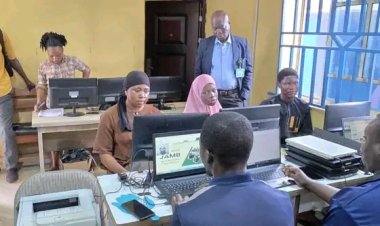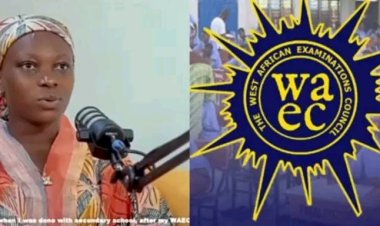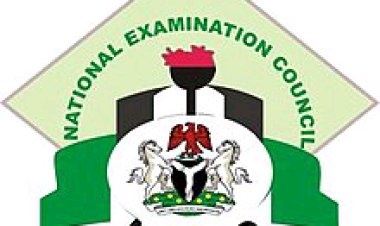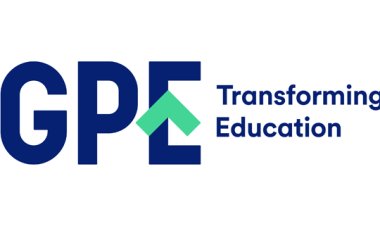NOUN Harnesses Micro-credentials to Revolutionise Learning Accessibility - NOUN VC, Prof Olufemi Peters
The Vice-Chancellor, National Open University of Nigeria (NOUN), Prof. Olufemi Peters, has said that the university is uniquely positioned to leverage micro-credentials (MCs) to expand access to education and empower life long-learning.
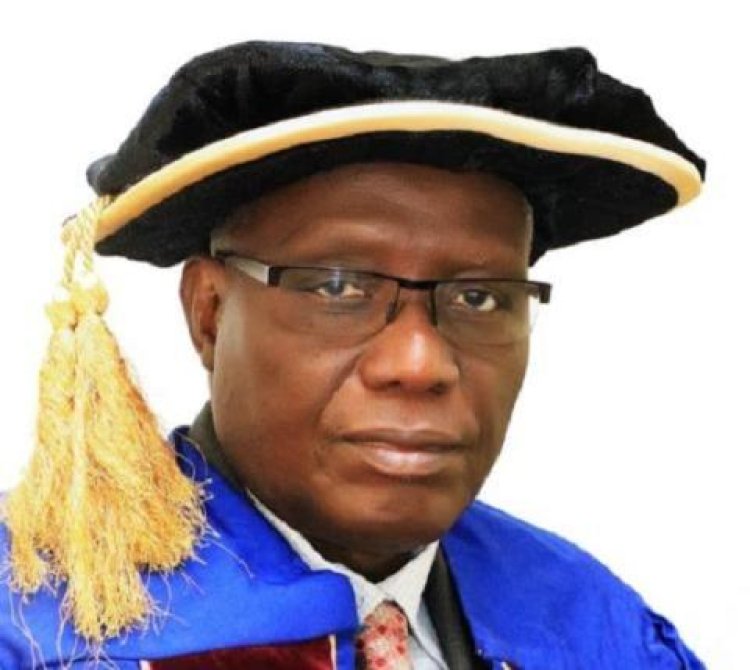
The Vice-Chancellor, National Open University of Nigeria (NOUN), Prof. Olufemi Peters, has said that the university is uniquely positioned to leverage micro-credentials (MCs) to expand access to education and empower life long-learning.
Speaking at the Opening Ceremony of a 2-day workshop titled: Creating Micro-Credentials in Open and Distance Learning Praxis, Peters emphasised that micro-credentialing is the future of education.
The workshop, organised by the Regional Training Institute for Distance and Open Learning (RETRIDOL) was held between 27th-28th August, 2024 at the NOUN headquarters in Abuja.
It would be recalled that the Vice- Chancellor, during the Inaugural Conference of the Open, Distance and e-Learning Association of Nigeria (ODeLAN) stressed the need for implementation of MCs in the Nigerian education system, especially within the Open and Distance Learning (ODL) institutions.
According to him, "Embracing Micro-Credentials, we have the power to make learning more accessible, relevant, impactful than ever before.

"My analysis has led me to suggest that there is potential for micro-credentialing to be implemented in the Nigerian education system, especially within the open and distance learning institutions; but it is important that the policy framework be designed to take into account the specific needs of the country."
Speaking at the recently concluded 2-day workshop, Peters said Micro-Credentials offers opportunity in the face of increasing demands for specific skills that is driving the needs for continuous re-skilling and up-skilling in the contest with the challenges of traditional educational systems that are not aligning with the current employment needs among others.
“Creating effective Micro- Credentials requires careful consideration and planning, hence the need for the workshop to explore, brainstorm and critically examine the NOUN ODL system with the goal of developing actionable strategies for implementing and development of Micro-Credentials in NOUN.
‘’We stand at the threshold of a transformative period to education in our university, perhaps in our country," he said.
The workshop, he said, represents a critical step in the ongoing efforts of the university to build capacity for the development of high-quality Micro-Credentials in the university.
Peters further commended RETRIDOL for leading a crucial initiative. ‘’RETRIDOL has staged through its projection on ODL practices in NOUN since its establishment by CommonWealth of Learning (COL) and remained focused on its mandate."
The VC also called for support from bodies like the National Universities Commission (NUC), Open, Distance and e-Learning Association of Nigeria (ODeLAN) for the adoption and establishment of national and regional frameworks which pose as part of Micro-Credentials challenges among others.
‘’We plead with the NUC for thorough understanding of our quality Assurance needs and discretionary authority in crediting and assuring our academic programmes, our matrices are different from the conventional universities, we think NUC will be doing the ODL Community and indeed Nigeria good to look into this area, it is my hope that the deliberations here will lay a foundation for the frameworks," he added.
He implored the participants to engage actively and share insight and establish connections that will continue to drive and support the Micro-Credentials movement beyond the event.
Earlier, in her welcome remarks, the Director RETRIDOL, Prof. Christine Ofulue, said the idea to organise a workshop on Micro-credentials in NOUN was birthed a couple of years ago partly in recognition of the similarities in goals between MCs and Open Universities like NOUN in terms of access, flexibility, and lifelong learning.
Ofulue stated that the thrust of the workshop was to lay the foundation for the development of Micro-credentials (MCs) in general and for ODL practitioners in the context of NOUN, West Africa and the Global South, enhance their ODL praxis (understanding and action) and increase the effectiveness of context-appropriate ODL.
The primary objectives of the workshop, she said, were to: sensitise participants on MCs for professional development with demonstrable skills in the context of their roles within the ODL system at NOUN as well as trends in global ODL provision, provide participants with hands-on experience in the design of MCs with a focus on professionalising ODL practice includingt principles of designing MCs, alignment with industry needs in this case, ODL system needs, and certification methods, among others.
However, by the end of the workshop, participants will demonstrate an informed understanding of the factors shaping Open and Distance Learning (ODL) praxis internationally and nationally, as well as how these factors relate to their specific roles/functions and practices, develop outlines for a series of MCs in a stackable, credit-bearing and recognition of a learning journey in ODL praxis, engage in and reflect on two dynamic facilitation methodologies, showcasing the effective use of collective intelligence in group settings, she said.
Prof. Ofulue while giving the overview of MC’s and professionalisation of ODL Praxis identified micro-credentials as key strategies to revolutionize Open and Distance Learning (ODL).
Ofulue explained that micro-credentials offer significant advantages over traditional degree programmes.
"Micro-credentials are becoming increasingly popular as a flexible and focused method of delivering education and training within the ODL framework".
"They provide rapid upskilling and personalized learning opportunities, which makes them highly effective compared to conventional degree programmes," she noted.
She further elaborated that micro-credentials concentrate on specific learning outcomes within a narrow field and can be completed in a shorter time frame, making them an ideal choice for those seeking targeted education.
The 2day workshop featured presentations on Trends and Issues in ODL in the Context of Nigeria/West Africa by Prof. Francis Egbokhare, Trends and Issues in International ODL by Prof. Paul Prinslooo, A Brief Introduction to MCs in ODL praxis by Prof Christine Ofulue and Mr Felix K. Olakulehin among others.
It also had in attendance Mr. Oladipo Ajayi (Registrar)Dr. Angela Okpala (University Librarian), Prof. Dorothy Ofoha, deputy director, RETRIDOL, Prof. Juliet Inegbedion, Director Quality Assurance among other carefully selected participants to explore, brainstorm and examine the NOUN ODL system.

